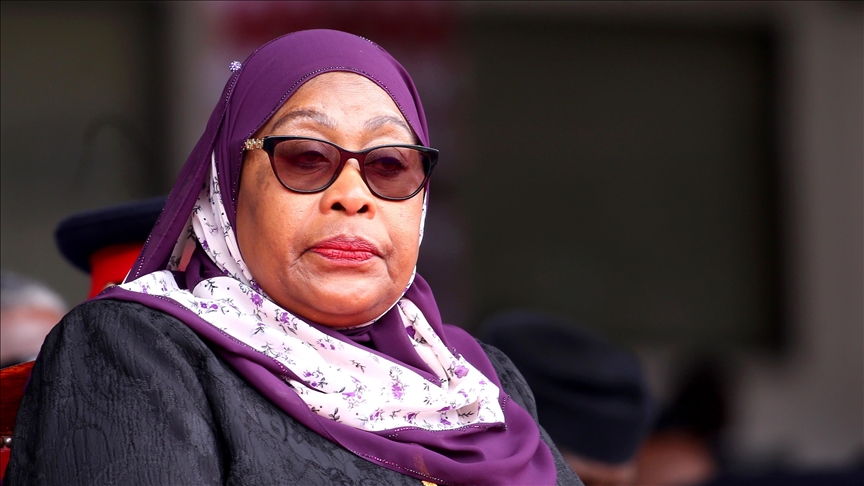- Details
- East Africa
- 387
President of Tanzania, Samia Suluhu Hassan
Over 40 African organizations call for prosecution of security officials for killings, demanding that President Suluhu step down immediately
- Rights groups accuse authorities of 'digging mass graves across Tanzania, especially in Mabwepande' to conceal evidence of extrajudicial killings
- Tanzania’s government has not yet responded to report, but authorities previously dismissed similar claims, calling them 'fabrications meant to destabilize the country'
Over 40 African organizations have called for the prosecution of security officials for the alleged killings of approximately 3,000 people since the Oct. 29 elections, as well as the immediate resignation of President Samia Suluhu Hassan.
According to a report released in Nairobi by the "Jumuiya Ni Yetu" movement, which means "The Community is Ours," the killings occurred after Tanzania's October 29 general election, which was marred by allegations of fraud, suppression, and an internet blackout.
President Suluhu won the election with 97.66% of the vote, or 31,913,866 out of 32,678,844 ballots cast, the National Electoral Commission said.
The groups, which represent human rights defenders, lawyers, and feminist movements from ten African countries, said their evidence includes photographs and videos that journalists can access.
If confirmed, the reported 3,000 deaths would make the unrest one of East Africa's deadliest political crackdowns in recent memory.
The United Nations and human rights organizations have earlier confirmed fatalities and arrests following the disputed vote, but the scale of violence described by the organizations is one of the most serious allegations made since the election.
In a joint statement, the groups said: “As of November 7, 2025, at least 3,000 people have been murdered by Tanzanian security forces, with thousands of people still missing. Amidst the ongoing attempted cover-up, facilitated by the continued internet blackout and bandwidth restrictions, this number could be thousands below the actual death toll.”
The victims included protesters, street children, medical workers, and civilians uninvolved in the demonstrations, according to the statement.
The rights groups alleged that authorities were “digging mass graves across Tanzania, especially in Mabwepande,” to conceal evidence of extrajudicial killings.
Hospitals were being guarded by police and intelligence agents who “confiscated phones, deleted footage, and prevented relatives from identifying bodies,” the statement claimed, adding that doctors and nurses were allegedly ordered to harm, with an intent to kill, patients critically injured by gunfire.
The report also alleged that the weapons used in the crackdown were imported by a close family member of President Suluhu, adding that they were military-grade arms not authorized for standard police operations.
The civil society coalition demanded the president’s resignation, prosecution of senior officials, and the formation of an interim transitional government to restore order.
It also called for an independent international fact-finding mission and an emergency session of the African Union Peace and Security Council to address what it described as “a humanitarian catastrophe.”
The statement urged the Southern African Development Community (SADC) and the African Union to intervene immediately and deploy monitoring missions while holding the Tanzanian Communications Regulatory Authority accountable for its role in the internet shutdown.
Tanzania’s government has not yet responded to the report, but authorities have previously dismissed similar claims, calling them “fabrications meant to destabilize the country.” Anadolu Agency






